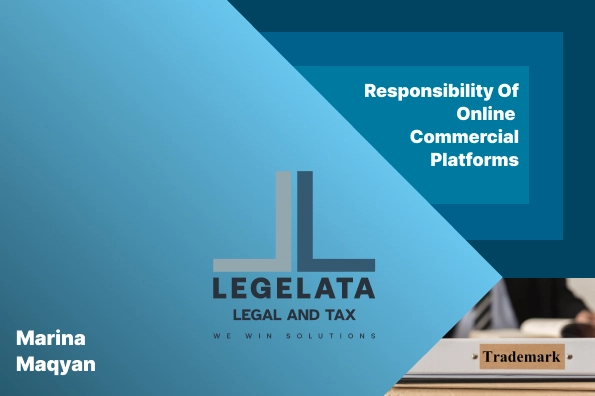In recent years, Armenia has witnessed a burgeoning growth in e-commerce, driven by technological advancements and shifting consumer behavior. As this digital marketplace expands, so too do the challenges and opportunities concerning its taxation. The intersection of traditional tax frameworks with the dynamic nature of online transactions presents both complexities and the need for innovative solutions.
Understanding the LandscapeUnder Armenian legislation, the Law on Protection of Economic Competition ("Law") provides a clear stance on maximum resale prices.
E-commerce in Armenia encompasses a diverse range of activities, from retail sales of goods and services online to digital platforms connecting buyers and sellers. This digital economy has reshaped traditional business models, allowing entrepreneurs and established companies alike to reach broader markets beyond geographical boundaries..
Taxation Challenges
Taxation for e-commerce service providers presents several challenges due to the unique nature of digital transactions and the global reach of the internet. Some key challenges include:
- Cross-border transactions: E-commerce allows businesses to operate globally, which complicates tax compliance as transactions may involve multiple jurisdictions with different tax regulations.
- Tax jurisdiction determination: Determining which jurisdiction has the right to tax e-commerce transactions (source-based vs. destination-based taxation) can be complex and varies by country.
- VAT compliance: Value-added tax (VAT) regulations differ across countries, and e-commerce businesses may need to register and comply with these taxes in multiple jurisdictions where they have customers.
- Taxation of digital goods and services: Some jurisdictions have specific rules for taxing digital goods and services, which may differ from the taxation of physical goods or traditional services.
- Tax avoidance and evasion: Tax authorities are increasingly focusing on preventing tax avoidance and evasion in the digital economy, leading to stricter compliance requirements and potential penalties for non-compliance.
Policy Response
Armenia, like many nations, is adapting its tax policies to the realities of the digital age. Policy responses mainly include:
Digital Service Taxes: Armenia has introduced DST on revenues generated by digital services provided by non-resident companies. Thus, according to Part 9.1 of Article 288 of the Tax Code of the Republic of Armenia, in the event that a non-resident organization that does not have a permanent establishment in the Republic of Armenia provides an electronic service to an individual of the Republic of Armenia who is not an individual entrepreneur or a notary, the non-resident organization is registered in the tax authority in the manner established by the Government. The procedure for registration is determined by Decision of the Government of the Republic of Armenia dated February 17, 2022 No. 184-N. According to paragraph 2 of the Appendix to the Decision, a non-resident organization in the case of providing electronic services to an individual shall be registered in the tax authority.
Failure to comply with the above requirements leads to a number of adverse consequences. In particular, in accordance with article 407 of the Tax Code, in case of detection of illegal activity as a result of operational-search activities conducted in accordance with the Law of the Republic of Armenia "On operational-search activities", except for the case of leasing real estate, a fine is charged for such activity, calculated in the order established by the Code, in the amount of 50 percent of the income, but not less than 200 thousand drams. In the sense of the application of this article, the implementation of entrepreneurial activity (except the activity prohibited by law) without state registration defined by law or without registration in the tax authority is considered illegal activity.
The mentioned activity can also lead to the liability defined by Article 290 of the Criminal Code of the Republic of Armenia, which specifically provides for the following punishment: a fine in the amount of twenty to fifty times, or restriction of freedom for a period of one to three years, or short-term imprisonment for a period of one to two months, or imprisonment for two to five years.
Conclusion
The taxation of e-commerce in Armenia presents both challenges and opportunities as the country navigates the complexities of the digital economy. By adopting a proactive approach to tax policy, Armenia can foster a fair and efficient taxation framework that supports innovation and economic growth in the digital age. Active steps have already been taken by the country for comprehensive regulation of this sector.
By staying informed about Armenia&'s tax laws and proactively addressing compliance challenges, e-commerce enterprises can position themselves for success in Armenia's dynamic digital economy. As the country progresses, collaboration between businesses, tax authorities, and policymakers will be crucial in shaping a tax framework that supports innovation and economic development in the digital age.
Author:
Marina Maqyan
Associate, Legelata Legal and Tax
DISCLAIMER:
This material is produced by or for Legelata LLC. The information contained in this piece is provided for general informational purposes only and does not contain a comprehensive analysis of each item described. Prior to undertaking (or omitting) any action, the reader is advised to seek professional advice tailored to their specific situation. Neither Legelata nor the author accept and hold liability for acts or omissions taken in reliance upon the contents in this material.
LEGELATA LLC 28/06/2024












